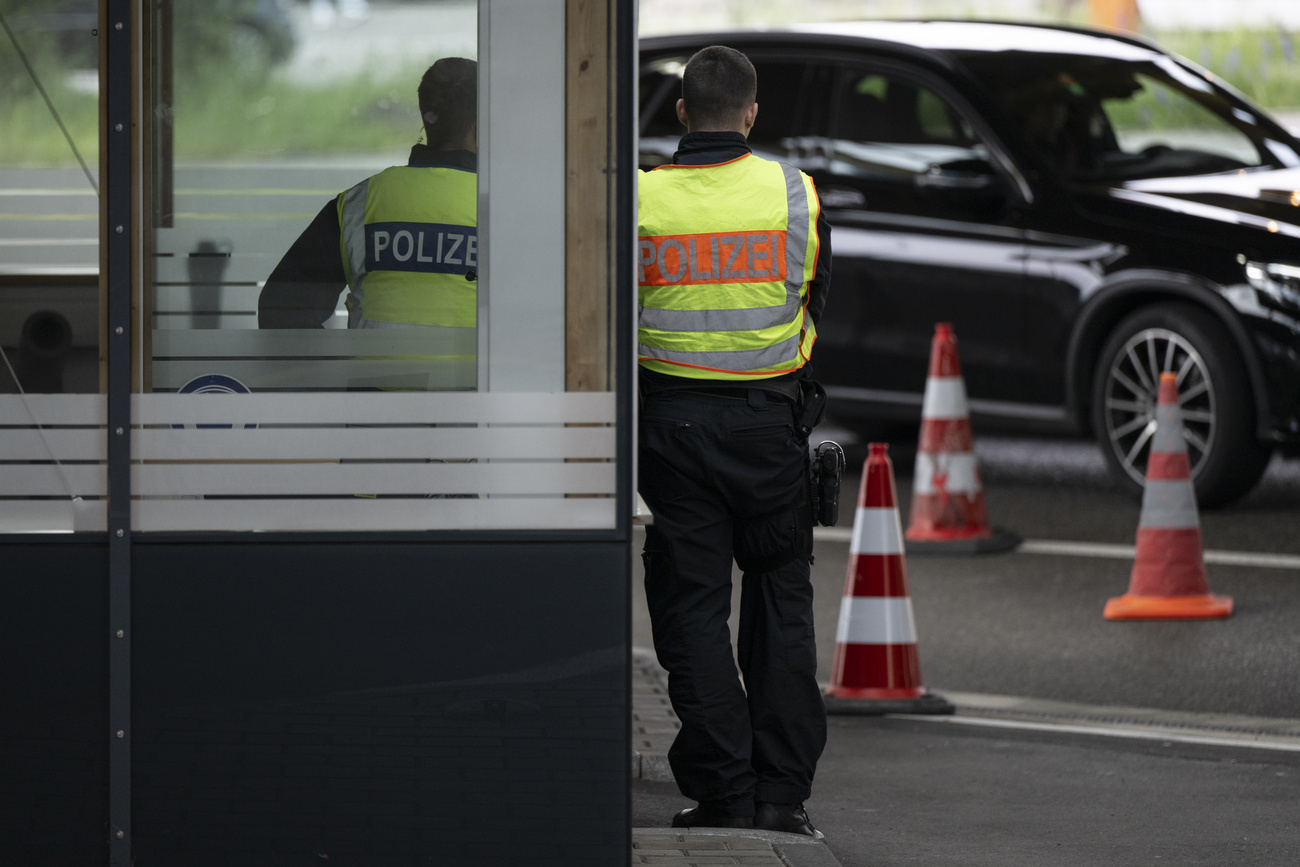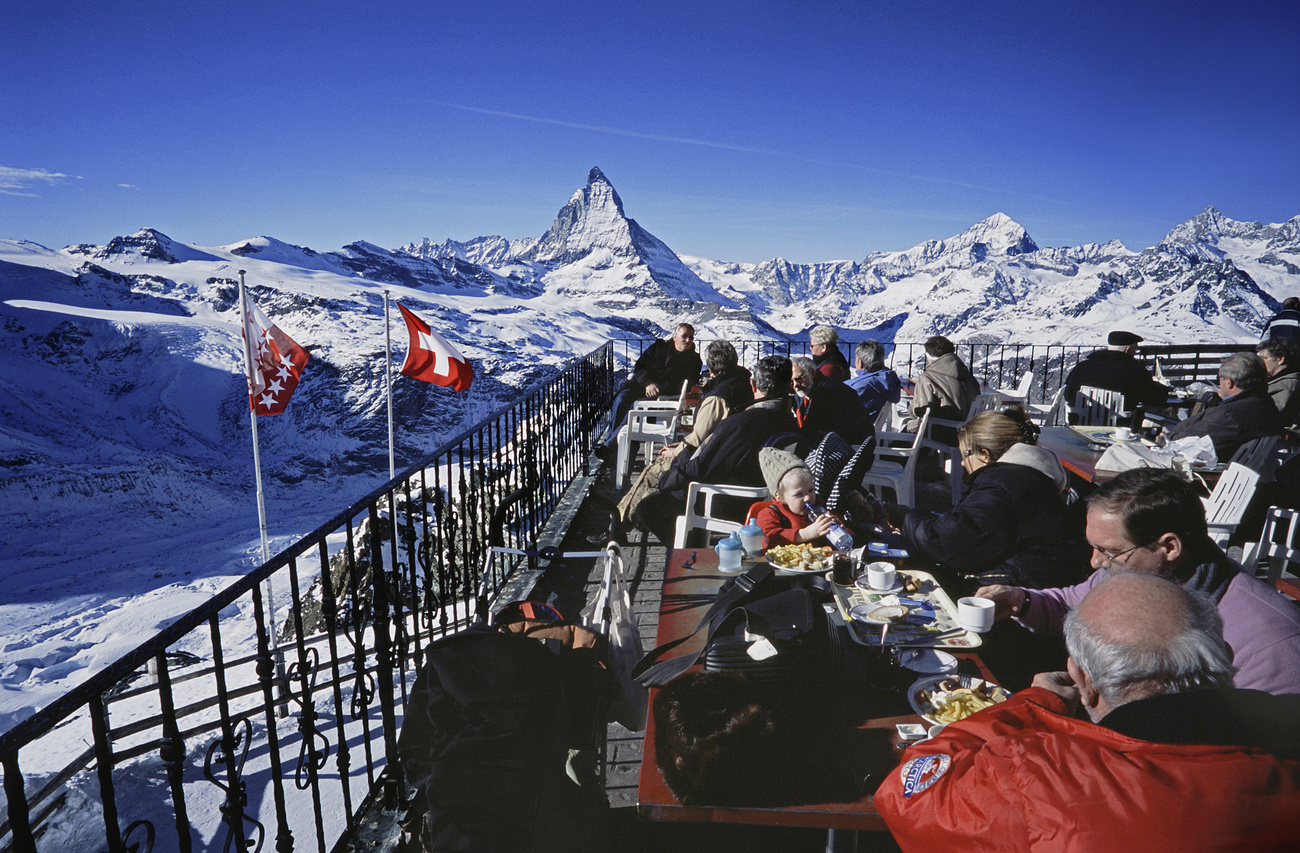
Swiss lawmakers moot transit tourism tax

Swiss lawmakers are proposing a tax on foreigners who drive through the country en route to other destinations. The government warns of complex implementation and high costs, and one expert doubts the usefulness of the tax.
+Get the most important news from Switzerland in your inbox
Senators have had enough of private transit traffic clogging up Swiss roads. “The traffic keeps growing and growing, and it’s getting out of hand,” stated Heidi Z’Graggen, a centre-right parliamentarian.
+ Mass tourism: “We feel like employees in a theme park”
Stefan Engler, a Graubünden Senator from the Centre Party sees no end in sight: “When I imagine how traffic will increase in the coming years, it’s quite frightening,” he told Swiss public broadcaster SRF.
The Senate has backed a proposal by Swiss People’s Party parliamentarian Marco Chiesa. It calls on the government to impose a transit tax on all foreign nationals crossing Switzerland in their private car, camper, or motorcycle—”without a significant stay in the country”.

More
Lucerne coach tax puts brakes on tourist influx
The amount of the tax would be set flexibly depending on the time of day, day of the week, or traffic density. This should impose a greater levy when traffic density is higher.
“Implementation is technically feasible. Over 170 border crossings are already equipped with automatic license plate recognition,” said Chiesa.
EU reaction
The Federal Council has rejected the introduction of a transit tax because it would require complex monitoring of all border crossings and incur costs. On the other hand, it is unclear what constitutes an “essential stop” for which no tax would be payable, according to Transport Minister Albert Rösti.
The Federal Council is also concerned about European Union relations. While Rösti confirmed that a levy would be compatible with existing agreements with the EU, how the EU would react politically was another question.
Alexander Erath, Professor of Transport and Mobility at the University of Applied Sciences Northwestern Switzerland, agrees. While a transit tax may be compatible with the EU treaties, it would not be conducive to good neighborly relations.
Eric Nussbaumer, Social Democrat parliamentarian and president of European Movement Switzerland, however, assumes that the EU would not resist. “It’s the same in other countries – they have vignettes and additional fees on certain sections of the route.” The principle of levying fees on additional sections is possible and needs to be examined in more detail.
Erath, however, doubts that such a tax would have a significant impact. While it might provide some relief on days with heavy through traffic between the borders, he added, “on other days, when Swiss domestic traffic in particular leads to traffic jams at the Gotthard, it has little effect.”
The proposal for the new tax must now be approved by the House of Representatives. This should be a mere formality, as five similar proposals have already been submitted in the past.
If both chamber agree, the Federal Council must draft a bill, which in turn must be approved by both councils. A referendum is then required. According to the Federal Council, the introduction of a transit tax requires an amendment to the Federal Constitution.

More
Swiss tourist hotspot Zermatt considers day tripper fees
Adapted from German with DeepL/mga
We select the most relevant news for an international audience and use automatic translation tools to translate them into English. A journalist then reviews the translation for clarity and accuracy before publication.
Providing you with automatically translated news gives us the time to write more in-depth articles. The news stories we select have been written and carefully fact-checked by an external editorial team from news agencies such as Bloomberg or Keystone.
If you have any questions about how we work, write to us at english@swissinfo.ch.

In compliance with the JTI standards
More: SWI swissinfo.ch certified by the Journalism Trust Initiative




























You can find an overview of ongoing debates with our journalists here . Please join us!
If you want to start a conversation about a topic raised in this article or want to report factual errors, email us at english@swissinfo.ch.